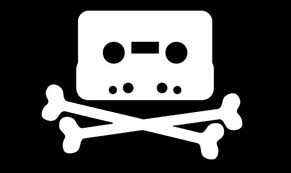I’m a big fan of Spotify. I’ve fully bought in to the subscription model for music (with a couple caveats: album art/liner notes and completeness of library). As long as the catalog is overwhelming and has the music I want to hear then I’m 100% in. I’d much rather pay $5-10/mo. to have everything than $12-18 a CD, no question about it. This is the way music is going, accept it, enjoy it.
That’s why when I first heard of Spotify I started getting interested. Yeah, I had tried Pandora and Slacker and Rdio but they didn’t connect. I could see blog posts about and screenshots of Spotify and read what the CEO said. I wanted it. But I couldn’t have it. No licensing for the US. I knew some folks had gotten early US access but I didn’t know how. I read where a few resourceful people had done some “things” to get access. Ironically I knew that our CD The Border Blasters “Blast From The Past” was available on Spotify (through our distribution deal with CDBaby). I knew this because I’ve gotten paid for people who stream or download our music via Spotify. It’s pennies, to be sure, but those are folks who are probably fans now and they weren’t before. I call that a win. And that’s another rant for another time.
When the service launched in the US I was stoked. Finally! I got an early invitation and signed up. Yup, it’s good. Damn good. Yup, their Americana and Roots catalog is a little thin but there is a lot they *do* have. Some stuff I’d never seen before. For the last month or so of doing the Border Blast Revue on KRTS I was programming the show about 75% via Spotify. It was wonderful to have access to some of the new major label releases that never serviced our small station and some super small stuff that somehow made it into their library.
Then Spotify announced the partnership with Facebook. “Uh oh…” Now you *have* to have a Facebook account to get a Spotify account. I guess Spotify needed the cash infusion. I’ve heard they are hemorrhaging cash and that the major labels structured ridiculous and horrible deals to get access to their catalogs. A chunk of ownership by Facebook bought them some life for their US launch.
But unless they get out of the deal with Facebook, or at least give the option of having an account without Facebook, I believe that relationship might also create serious long term problems for Spotify.
I think the bloom is off the rose for Facebook. I’m on there but I rarely post anything. I just don’t like the fact that I’m not the customer – I’m the product. Sure it’s great to see what everyone is doing and find old friends and stuff. Everyone is there. But people are getting hip to the constant invasions of privacy and the commoditization of our personal lives for the big corporations. I don’t think anyone thinks Zuckerberg or the Facebook behemoth has our interests at heart. They sure don’t have a motto like “Don’t Be Evil.” (Of course, whether or not Google lives up to that motto is certainly open for debate…)
It’s really too bad that Google didn’t make the deal with Spotify instead. Maybe they tried and couldn’t work the deal I don’t know. Maybe they were too invested already in their own Google Music service. But I really think that was a missed opportunity for Google. It could have been exactly the shot in the arm that Google+ needed.
I’ve tried to talk several of my friends into getting Spotify. They would love it; I know they would. But they say “No way!” to Facebook. Spotify may be tapping into the masses on Facebook but by doing so they are shutting the door on probably an equal number of potential customers who will never, ever sign up on Facebook. And unless Spotify can make their service available to anyone, not just Facebook members, it’s going to decline along with Facebook.
I guess the positive spin on this is that there is still a void, an opportunity. I thought Spotify was going to be the holy grail of music subscription: Everything ever recorded available any time to anyone for an affordable monthly fee. That’s the goal. That’s what Spotify said it wanted to be. They aren’t there yet. And the Facebook deal hobbles getting there perhaps as much as it helped them. But I know if someone builds that they’ll own the music world.
 John Mellencamp wrote an article for Huffington Post. I wouldn’t have noticed either except that Bob Lefsetz happened to mention it in a recent newsletter. Mr. Mellencamp says, essentially, that you’re stealing from him and that ISPs and Google should pony up and give him some money.
John Mellencamp wrote an article for Huffington Post. I wouldn’t have noticed either except that Bob Lefsetz happened to mention it in a recent newsletter. Mr. Mellencamp says, essentially, that you’re stealing from him and that ISPs and Google should pony up and give him some money.